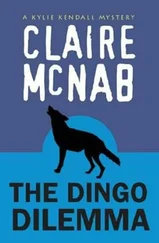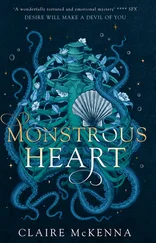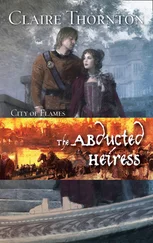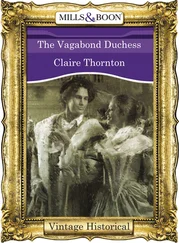“Or a real bow,” Gustavo added.
You can’t teach your children what you forget.
“The Wayãpi must remember the ways of the Grandfather People—” Gustavo started, but Tuír barked a laugh, as if to say, These words from you? You who wear khaki shorts with a cellphone in one pocket and a wallet in the other.
Again, Gustavo felt his anger rising. When they were children, no one in their village could tell the twins apart at first sight. Not until Tuír showed his quick temper, or Gustavo laughed. They said that Gustavo loved to laugh so hard that he fell over backward, but he couldn’t remember a time when he wasn’t sad, resigned, or angry.
“Stay here,” Gustavo said, before he turned and walked away.
It was one of the little ways the twins hurt one another; their instinct was to remain at each other’s side.
Gustavo was in the store when it happened. He was trying to read the small print on the packaging of a new phone card. In one second, he realized that his eyes were failing with old age. In the next, bullets shattered the shop’s windows. Gustavo dropped to a crouch and covered his ears until the deafening gunfire stopped. When he lifted his head, Gustavo saw Father St. John slumped against the counter, bloody and dazed. Gustavo scrambled over to him, trying not to skid and fall on shards of glass. He held the old man’s face in one hand while the other patted his body, searching for mortal wounds. The priest groaned in pain, but he wasn’t shot, just cut and bruised all over. Gustavo looked through the shot-out frames of windows.
My brother!
As he jumped up, the priest grabbed his leg. Gustavo yanked hard. Twice—three times before he could pull free from the old man’s tight grip. Tires squealed on the road outside. By the time Gustavo raced out the door, a red truck was already peeling off down the road into town. Tuír was lying by the parked jeep with his face up, eyes and mouth open. Blood darkened his orange polo shirt to a wet crimson. The flap of one ear was cut off.
Gustavo stared down and saw a lifeless body identical to his own. He thought he saw himself with empty eyes looking up at the sky. Those last words thrown at his brother would haunt Gustavo forever. Stay here , he had said to Tuír. And so his twin had died in his place.
* * *
Healy in the Gulf of Alaska December 28 T-minus 35 days to launch
STAY HERE…
Gustavo had stayed outside that gas station. Time had frozen, trapping him in a small piece of the past with no urge to break through. Numb shock gave way to waves of acute pain as he relived the murder and felt Tuír’s absence. Gustavo had read so many poems about the aftermath of war in which soldiers felt severe burning, itching, and clenching motions in their missing limbs. Gustavo felt these pains for his missing twin, now a phantom self.
His more lucid moments of grief were tinged with a bitter and hopeless despair over the inevitable extinction of the Wayãpi. For how could he save an entire tribe when he couldn’t even save his own brother? And so Gustavo stayed there, in that time of horror and death. Until now.
He stuffed a piece of cornbread into his mouth, chewed, and swallowed. Then he ate a spoonful of beans as he considered his bunkmate’s parting words: For the first time in hundreds of years, the Wayãpi will be left alone in the forest. Until the comet hits or doesn’t. Jack was right. Suddenly the Wayãpi were no more doomed than the rest of humanity. In fact, they were better off in the safety of the forest with their knowledge of how to subsist and survive.
Gustavo ate more beans as he felt the burden of saving the Wayãpi and their lands lift from his shoulders—thanks to a comet. When his awareness fully returned to the here and now, Gustavo looked down and saw that his plate was scraped clean; he had eaten a full meal. Everyone on Healy had encouraged Gustavo to eat more on the journey: Jack, Ensign Ortiz, the members of something called the Morale Committee, but things had drastically changed. Two Coasties had to search the pockets of his poncho and jeans for smuggled food before Gustavo was allowed to leave the mess hall.
On the way back to his room, Gustavo peered out of a porthole and shielded his eyes from a setting sun like a glowing ember. He thought of Frost…
Some say the world will end in fire,
Some say in ice.
There was a Wayãpi myth of the Great Fire that Ends the World, but Gustavo couldn’t remember where the fire came from. Did it come from the starry skies? Or did it come from people? The Wayãpi themselves stole fire from the jaguar, when they were still animals and birds and the jaguar roamed in human form. With the power of fire, the Wayãpi learned to speak; they became human while the jaguar became an animal that could only roar in anger. Was being human about power? What about the power of destruction?
A woman passed behind him in the corridor, ripping on the nail beds of four fingers with bloody teeth. Gustavo couldn’t catch what she was muttering.
It wouldn’t be long before the ship anchored. There were announcements over the speakers, what Jack had called the pipes, that alternated prayers from the New Testament with instructions for gearing up and reporting to a lifeboat. Gustavo reached the entrance to the crew lounge and heard loud male voices.
“Government called for good helicopter pilots,” one stated. “They were flying them to South America, where they need to be able to take off and land vertically in the jungle.”
Gustavo peeked in and saw a few men seated at a table in the corner of the lounge. The voice belonged to a big young man called Ned, who was slouched over a fan of playing cards.
“Who says there’s still a need?” another man said. “Who says there’s still a government? We’ve been at sea for almost five months.”
“All that matters,” Ned replied, “is the defense effort at the equator. Captain Weber said so himself. So if there’s still an Effort, then I’m the helicopter pilot to find it.”
Ned cursed his “shit cards” and said he was going to “hit the head.” Gustavo backpedaled just as Ned exited the lounge.
“You are traveling to the South American equator?” Gustavo asked, nearly breathless.
The big Coastie startled and looked down. Ned had met Gustavo during a night of drinking under the Northern Lights. He had been quiet and watchful in Gustavo’s presence. I’ve never met a Nobel Prize winner , he finally said sheepishly.
“Well, I’m flying to Fort Hood in Texas,” Ned said after a pause. “If it’s still there. Our military was transporting personnel and supplies to the European spaceport in French Guiana. I’m hoping to catch a ride south.”
“Show me where you will go,” Gustavo commanded, pulling out the folded map he kept in his pocket.
Ned bent down and located the mouth of the Amazon River where it chipped and fissured the southern continent like the rim of a ceramic bowl. His index finger traced north along the coast, past the Oyapock River, to French Guiana.
“Here,” he said. “I think.”
Gustavo’s insides felt the heat of a terrifying hope. If the young man was to be believed—and Gustavo had grown accustomed to suspending all belief a long time ago—Gustavo wouldn’t have to die in this frigid and barren place. He had traveled to the snowy edge of the earth, and now he could go home.
* * *
CAPTAIN WEBER PAUSED by a porthole on his way to the weapons locker. Fog blocked first light; it was difficult to see where the Puget Sound of Washington ended and where fog and rain clouds began. Weber was grateful for the low visibility. No one on the coast would be able to see Healy until she drew close to anchor by the docks. There was no need to attract trouble when they would find it soon enough.
Читать дальше












